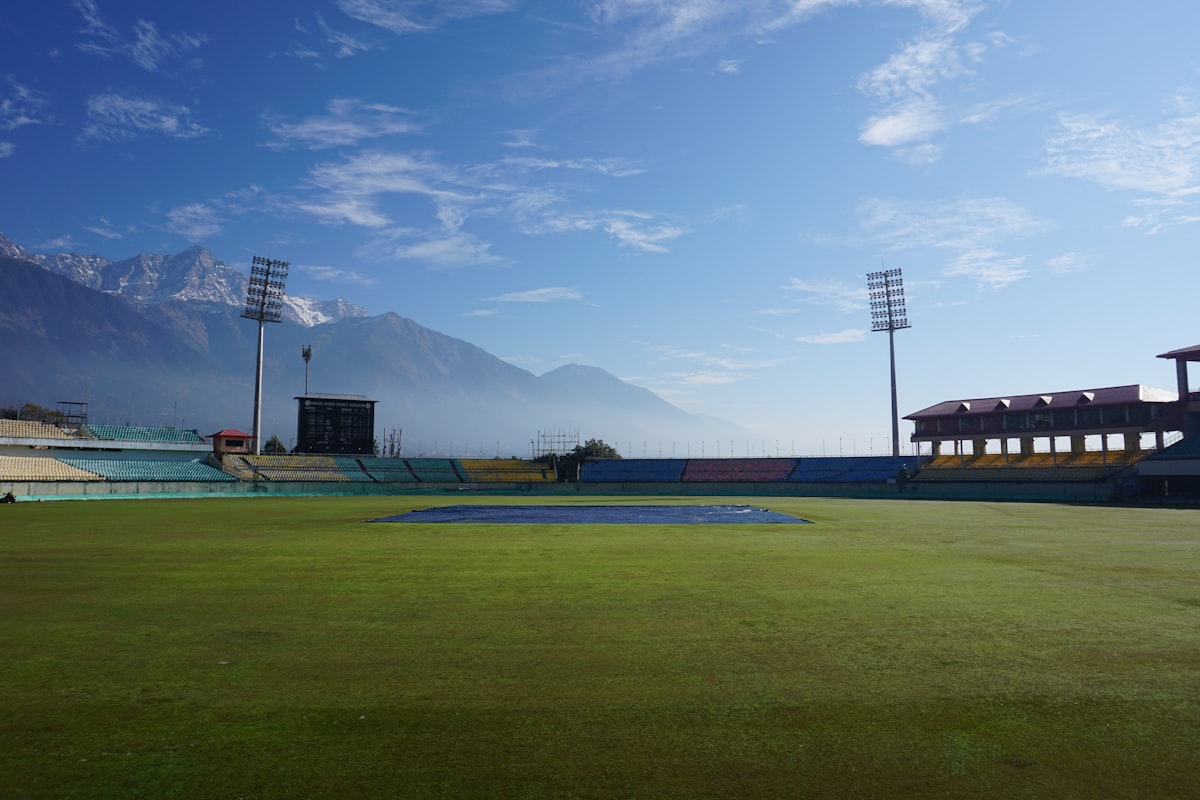Zimbabwe and their magical Cricket World Cup exploits (1983 to 1996)
The Zimbabwean cricket team made its World Cup debut in 1983 under Duncan Fletcher, who would later go on to become the England team coach. The African country's finest moment came when it defeated a strong Australian line-up in the league stage

The 2019 Cricket World Cup final between New Zealand and England would go into the annals as one of the greatest games ever played. While the 2019 edition was one of the most evenly-matched, what with all teams having undergone a transformation insofar as their campaigners and strategies were concerned, there were quite a few associate nations that allegedly received a raw deal owing to financial considerations outweighing the game's development aspects for the apex body governing cricket, the International Cricket Council.
1983 Edition: A flash in the pan
Be that as it may, this year's line up had a notable omission: Zimbabwe. The Zimbabwean cricket team made its World Cup debut in 1983 under Duncan Fletcher, who would later go on to become the England team coach. The African country's finest moment came when it defeated a strong Australian line-up in the league stage. Riding on captain Fletcher's 69 not out, Zimbabwe went on to post a competitive 239/8 in 60 overs. Yes, games then spanned 60 overs an innings with each comprising eight balls. Six-ball overs started in 1987, when the World Cup landed in the subcontinent for the first time. Captain Fletcher showed he was no pushover with the ball either by claiming 4/42 to break the back of the Australian chase, leaving it stranded for 13 runs.
More was to come at a later stage. It so transpired that the upbeat Zimbabwe began believing it was no upstart. An ample demonstration was made on June 18. However, given that it was a minnow nation taking on a middling India, BBC did not even assign cameramen to cover the event. Hence, there is no visual record of what transpired at Tunbridge Wells. Such was Zimbabwe's on-field charisma that they left a relatively better batting line-up gasping at 9-4, later 17-5, to 77-6 and 78-7. Cricketing glory was within their grasp and they nearly clutched on to it. However, the opposition captain had other plans. He hit, in what is considered one of the finest cricketing innings, 175 not out off 138 balls, including what was then the fastest World Cup century, to take his team to a competitive 266-8. The batsman was Kapil Dev. India registered a 31 run victory, but not before some scary moments with the minnows giving them a run for their money. India went on to win the World Cup, but the spirited Zimbabwe had arrived.
1987: The cult classic
Cut to 1987. While West Indies was still a power to reckon with, others were no pushovers. Australia defeating India in a cliffhanger by only one run set the tone for the season. However, one of the best matches was played between New Zealand and Zimbabwe. The African nation made a match out of a 243 run chase, riding primarily on Dave Houghton's skills. Reeling at 104-7, Houghton was joined by Iain Butchart, and the duo added 117 for the eighth wicket.
After putting up a brave fight on a deteriorating Hyderabad wicket, Houghton nicked one to the keeper to depart with the scoreboard reading 221, but not before lighting up the stands with a majestic 142 that included six sixes. Butchart took Zimbabwe within sniffing distance of victory, but was run out following a mix-up. The last wicket, too, fell to a misjudged call and Zimbabwe fell short by three runs. Zimbabwe lost all the remaining matches to be knocked out, but not before giving better-established cricketing nations a glimpse of their prowess.
The colours of glory
The 1992 World Cup heralded many changes. Colour dresses, white ball and day-night matches. While everyone knows that Pakistan came out of nowhere to lift the cup under their talismanic captain Imran Khan. The entire edition was littered with gems. A case in point is again Zimbabwe. Their match against Sri Lanka marked the international debut of Andy Flower, who would go on to become one of the greatest players to emerge from the African continent and secure Test-playing nation status for Zimbabwe.
Flower scored 115 not out in his first innings to take his team to 312-4. While they had the match under their grasp for much of the duration, an Arjuna Ranatunga blitzkrieg turned the tide, and Sri Lanka went on to become the first nation to effect a 300+ chase.
This was the World Cup where the Kiwis and Lankans formulated the first 15-over onslaught, and as they say... The rest is history. However, we are not done with the 1992 edition. In another round robin, Zimbabwe had faced off with the English team. There was no way the tiny and fledgling African nation could pose a hurdle to the eventual runners-up, who were sound and strong on paper. In what is regarded as one of the finest battles of attrition, Zimbabwe cried, crawled and limped their way to a paltry 134 all out in 46 overs. Top scorer was Dave Houghton with a painstaking 29 off 74 balls.
All seemed lost for the Zimbabweans, but a tall and chubby fast bowler, who was a part-time chicken farmer, had other ideas. In a spell that was in no way less than what Wahab Riaz perpetrated on Shane Watson in 2015, Eddo Brandes snared 4-25 in 10 overs. Despite a typical Alec Stewart rescue and resistance operation, England fell short by 9 runs. That the match spanned till 50th over of the run chase, speaks volumes about how tough scoring was. Talk about giant killers!
Fizzling out
Zimbabwe offered a dismal show in the 1996 World Cup in the subcontinent. Apart from a minor victory against minnows Kenya, who incidentally upset West Indies, they failed to live up to their reputation. They started their campaign and ended it poorly. The only notable match for the minnows came against a rampaging India. After being treated to some serious watertight bowling by Zimbabwe, India reached a respectable 247-5 mainly due to a sedate 80 by Navjot Sidhu and a somewhat belligerent 106 by Vinod Kambli. Despite losing wickets at regular intervals, the minnows were in the hunt until Venkatpathy Raju-Javagal Srinath combine cut short their stay to take India home by a comfortable 40 run victory margin. Despite fielding one of the best sides, Zimbabwe earned a paltry two points to be thrown out of the tournament. Yet, there was something about Zimbabwe that made spectators believe that there was something special to the team. The believers would be proven right in 1999 in England.




